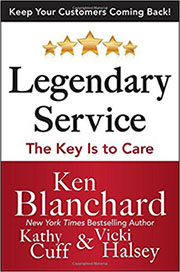 Government agencies are being confronted with a multitude of challenges that are forcing leadership to make some drastic changes. Decreased budgets, increasing workloads, and high turn-over are just a few hurdles that agency leaders have to overcome as they struggle to improve the general consensus of working for the federal government. Earlier this year, fifty-five Chief Human Capital Officers (CHCOs) were interviewed on the state of the federal workforce and the challenges they encounter in the federal government.
Government agencies are being confronted with a multitude of challenges that are forcing leadership to make some drastic changes. Decreased budgets, increasing workloads, and high turn-over are just a few hurdles that agency leaders have to overcome as they struggle to improve the general consensus of working for the federal government. Earlier this year, fifty-five Chief Human Capital Officers (CHCOs) were interviewed on the state of the federal workforce and the challenges they encounter in the federal government.
These interviews were conducted by the Partnership for Public Service and Grant Thornton, LLP and their findings were recently published in the report, Bracing for Change. What they uncovered after talking with these CHCOs were six challenges that are evident in the federal government: declining budgets, higher employee turnover, inadequate succession planning, lack of key competencies, gaps in agency leadership skills, and job satisfaction and communication issues.
Budget-cuts are not a new topic in the federal government. Agency employees have had to endure pay freezes, increased workloads, and limited resources. These conditions can lead to a decline in productivity, motivation, and engagement. According to the report, 72% of CHCOs are anticipating workforce reductions as a result of plunging budgets. These circumstances, along with the influx of government employees at or near retirement, are leading to high turnover. When these individuals leave, they’ll take vast amounts of experience and expertise along with them. Will the next generation of leaders have what it takes to step up and fill that gap? Inadequate succession planning, another challenge facing agencies, is causing CHCOs to wonder if future leaders possess the skills required for the roles they’re about to step into. Surprisingly, only twenty-seven percent of the CHCOs interviewed said their agency’s succession planning was sufficiently gearing-up employees to take on a leadership role.
When asked about the overall competency of agency’s HR staff, only forty-two percent viewed them as a trusted advisor. This number was down from forty-six percent in 2010. But it’s not only the HR staff that is getting a raised eyebrow. Only eighteen percent feel that agency leaders possess the skills needed to be successful and lead their staff. It’s no surprise then that federal employees are wavering in their commitment and satisfaction with their jobs and agencies are having a tough time attracting new talent.
The good news is that not all hope is lost. Based on these interviews and the feedback provided from the participating CHCOs, there are several recommendations on how to overcome these challenges and set-backs.
Reform the civil service system – The phrase, never let a crisis go to waste, has some bearings in this situation. Now is the time for government officials to turn things around to rethink pay and compensation reform, further improve the federal hiring system, update veterans preference laws and merit systems protections.
Stay the course on initiatives that are achieving results – Now is not the time to shy away from certain initiatives because they consume scarce resources. Investing in training to improve staff skill-set, devising ways to grow great leaders within the agency, and using metrics to guide decision-making will aid agencies in meeting their missions.
Improve succession planning – With the impending number of employees leaving the organization due to retirement and other reasons, many agencies must ensure knowledge transfer and skill-set for the next generation of government leaders.
Increase standardization of HR IT and use of shared services – Limited resources are forcing agencies to abandon their own unique systems. Many are relying on the Office of Personnel Management (OPM) and the Office of Management and Budget (OMB) to guide and support them on this issue.
Use available data and metrics – Utilizing available data to communicate with employees and increase transparency can lead to more engaged, committed, and passionate employees.
Implementing these recommendations based on the challenges most agencies are facing, can be a difficult task. How do you communicate change to your staff? How can employees open up to their managers and discuss the struggles they’re having within the workforce? You can learn how by signing up for an upcoming webinar featuring Eryn Kalish, professional mediator and relationship expert. Eryn will address these sensitive issues, reveal an important skill that can make a huge impact, and explain how to create a positive work environment that will lead to passionate employees that want to perform at their best. Sign-up to learn more!
Filed under: Change, Commitment, Communication, Conflict, Employee Engagement, Employee Passion, Federal Agency, Feedback, Government, Information Technology, Leadership, Management, Motivation, Productivity, Training Tagged: budget cuts, change, Chief Human Capital Officers, engagement, federal agency, motnivatio, Office of Managemeng and Budget, Office of Personnel Management, productivity, turnover






